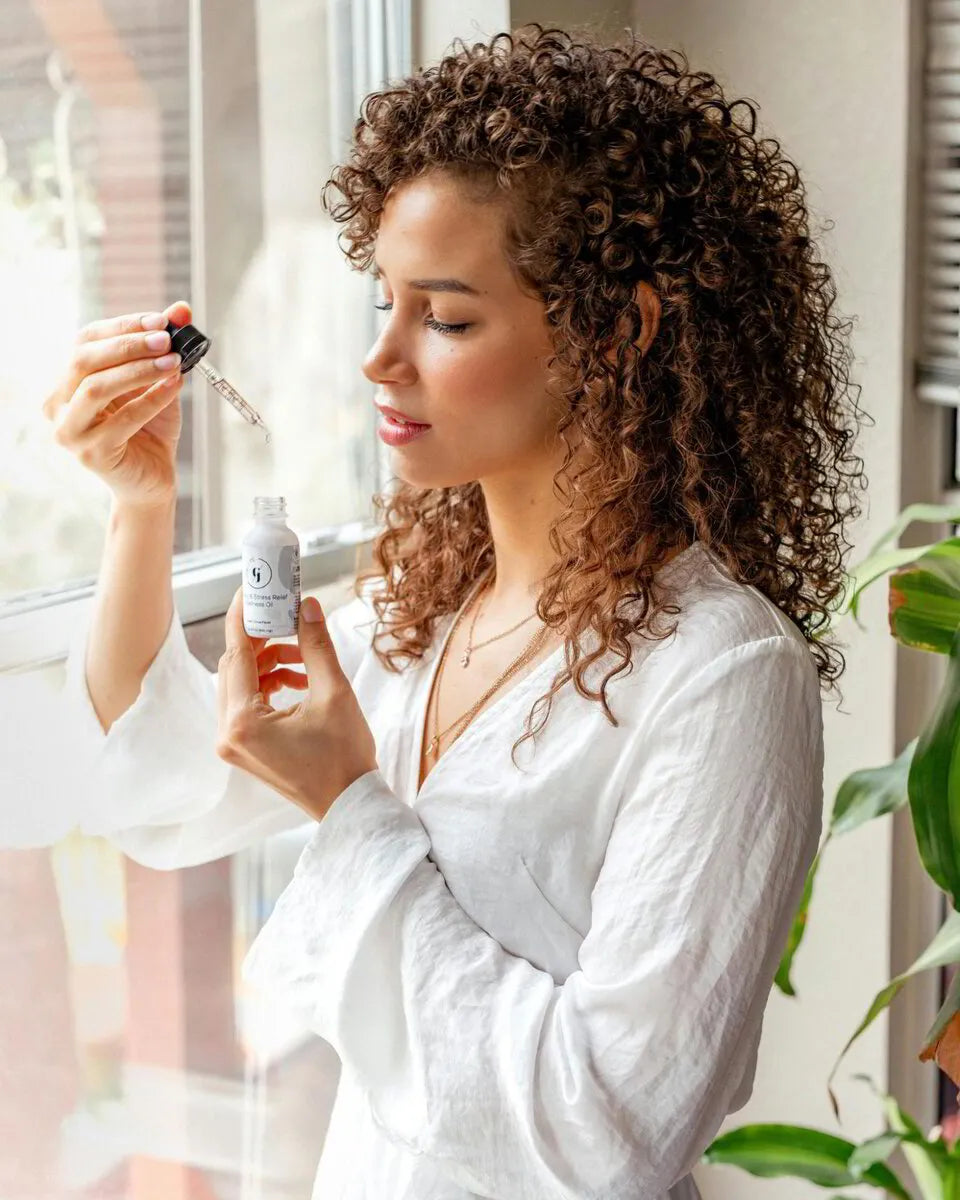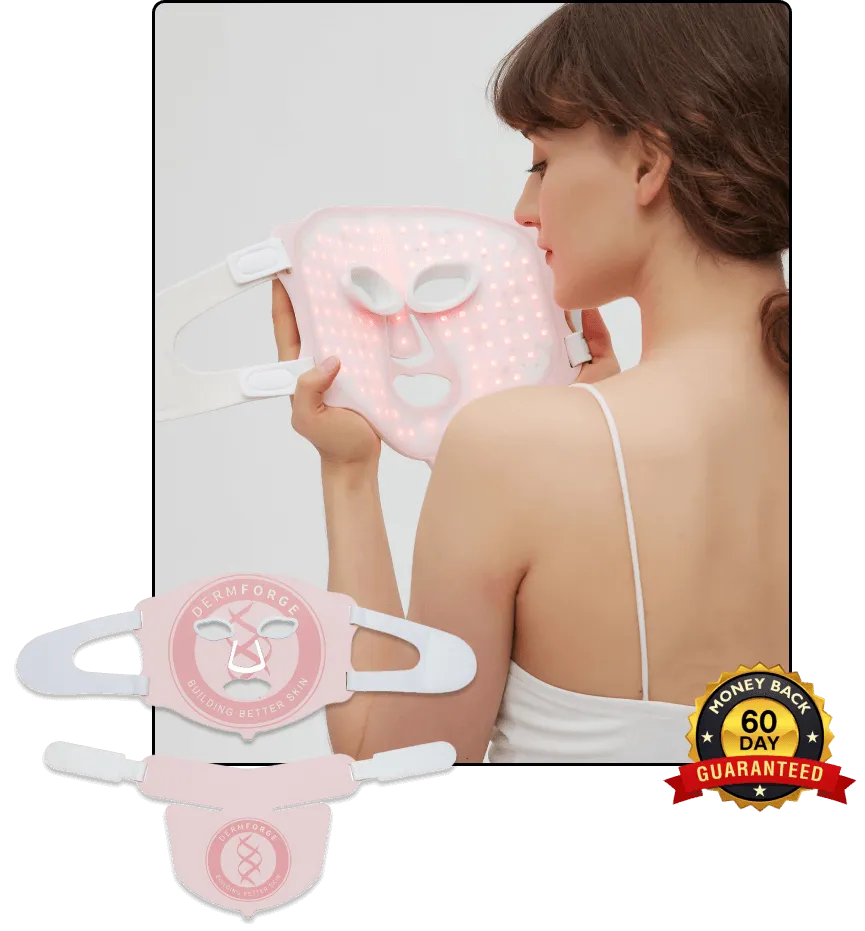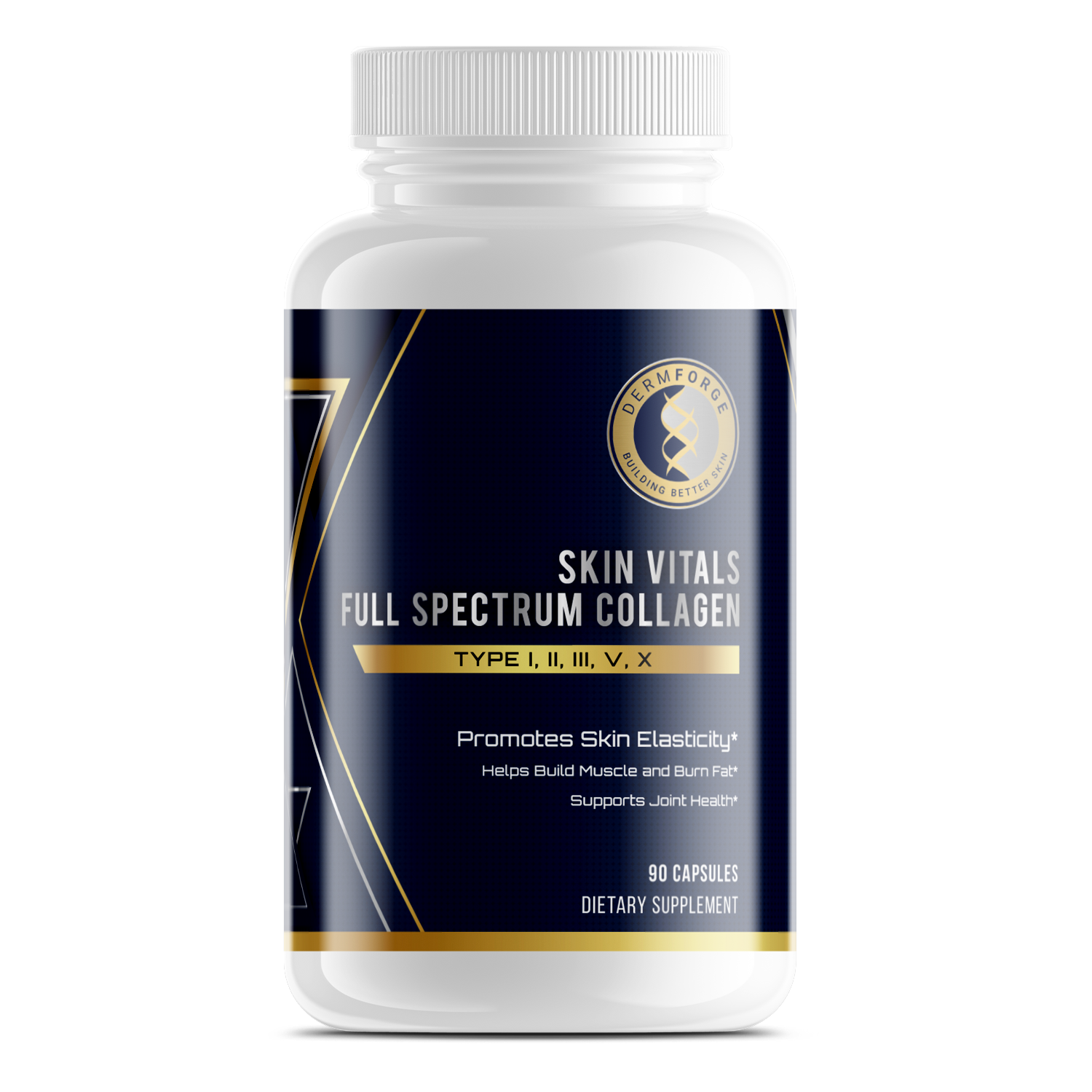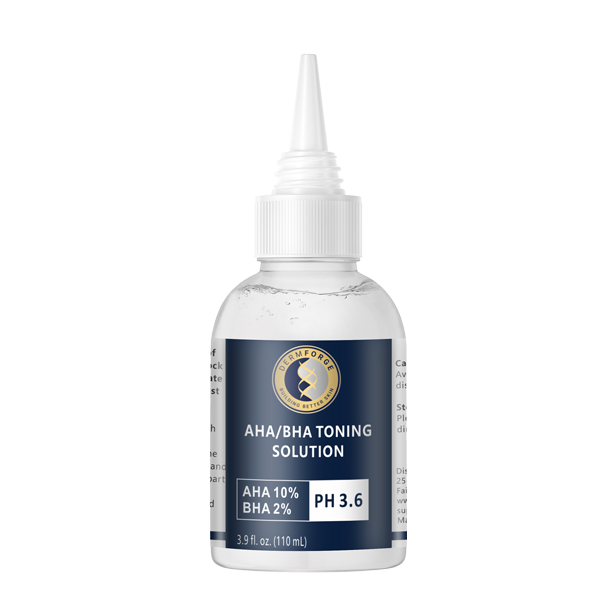Rosacea is a chronic skin condition that affects millions of people worldwide. It is characterized by redness, flushing, and small bumps on the face that can be physically uncomfortable and emotionally distressing. While there is no cure for rosacea, various treatments are available to help manage its symptoms. One such treatment that has gained popularity in recent years is retinol.
Understanding Rosacea: Causes and Symptoms
Rosacea is a multifaceted skin condition that puzzles researchers due to its elusive definitive cause. While it is widely believed that genetic predisposition and environmental factors contribute to the development of rosacea, the exact mechanisms remain unclear. Studies suggest that certain genetic variations may make individuals more susceptible to developing rosacea when exposed to specific environmental triggers. Factors such as UV radiation, extreme temperatures, spicy foods, alcohol consumption, and stress are thought to exacerbate the condition.
Moreover, rosacea disproportionately affects individuals with fair skin tones, particularly those of Northern European descent. Women are also more likely to experience rosacea than men, although the reasons for this gender disparity are not yet fully understood. Hormonal fluctuations and differences in skin structure and function between genders may play a role in this phenomenon.
The rosacea symptoms can vary widely among individuals, making diagnosis and management challenging. In addition to the hallmark signs of persistent facial redness, visible blood vessels, papules, and pustules, some individuals may experience less common symptoms such as eye irritation, burning, or stinging. In severe cases, rosacea can lead to rhinophyma, a condition characterized by thickening of the skin on the nose, and ocular rosacea, which manifests as dryness, redness, and sensitivity in the eyes.
The Science Behind Rosacea
Although the exact cause of rosacea remains unclear, scientists have made significant progress in understanding its underlying mechanisms. Research suggests that rosacea may be linked to an abnormal immune response, chronic inflammation, and dysfunction of the skin's natural protective barrier.
One theory is that rosacea involves an overreaction of the immune system to certain triggers, causing blood vessels in the skin to dilate and resulting in redness and inflammation. Additionally, studies have shown that individuals with rosacea have higher levels of certain inflammatory markers in their skin.
Another interesting aspect of rosacea is its potential connection to the gut-skin axis. Recent research has highlighted the role of the gut microbiome in skin health, suggesting that imbalances in gut bacteria could contribute to the development or exacerbation of rosacea. This emerging field of study opens up new possibilities for targeted treatments that focus on restoring gut health to improve skin conditions.
Common Symptoms of Rosacea
As mentioned earlier, rosacea can present with a variety of symptoms. It is important to note that not all individuals with rosacea will experience all of these symptoms, and the severity can vary from person to person. Here are some of the most common symptoms:
- Facial redness or flushing
- Small, red bumps or pustules
- Sensitive or irritated skin
- Visible blood vessels
- Burning or stinging sensation
In addition to these common symptoms, some individuals with rosacea may also experience ocular symptoms, such as dryness, irritation, and eye redness. Ocular rosacea can often coexist with the skin manifestations of the condition, further complicating its management. Healthcare providers need to recognize and address both the skin and ocular symptoms of rosacea to provide comprehensive care for affected individuals.
The Role of Retinol in Skin Care
Retinol is a form of vitamin A that has long been hailed for its skin-enhancing properties. It is a key ingredient in many anti-aging and acne-fighting products because it promotes cell turnover and collagen production. Retinol works by binding to specific receptors in the skin, stimulating the production of new cells and reducing inflammation.
What is Retinol?
Retinol is a vitamin A derivative, a fat-soluble vitamin crucial in maintaining healthy skin. It is naturally found in foods like liver, eggs, and dairy products and can also be synthesized in laboratories for use in skincare products.
Benefits of Retinol for Skin Health
Retinol offers a plethora of benefits for overall skin health. Its most well-known benefits include:
- Promoting cell turnover: Retinol helps remove dead skin cells, allowing new cells to rise to the surface and giving the skin a smoother appearance.
- Increasing collagen production: Collagen is a protein that gives the skin structure and elasticity. By stimulating collagen production, retinol can improve skin firmness and reduce the appearance of fine lines and wrinkles.
- Reducing hyperpigmentation: Retinol can help fade dark spots and even out skin tone by inhibiting melanin production, the pigment responsible for skin coloration.
- Minimizing acne breakouts: Retinol's exfoliating properties can unclog pores and reduce the formation of acne-causing bacteria, making it an effective treatment for both teenage and adult acne.
In addition to these well-known benefits, retinol has also been found to have antioxidant properties. Antioxidants help protect the skin from damage caused by free radicals, unstable molecules that can lead to premature aging and skin damage. By neutralizing these free radicals, retinol helps keep the skin looking youthful and radiant.
Furthermore, retinol has been shown to improve the skin's natural moisture barrier. This barrier helps prevent water loss and keeps the skin hydrated, essential for maintaining a healthy complexion. By strengthening the moisture barrier, retinol helps lock in moisture and keeps the skin plump and supple.
How Retinol Helps Manage Rosacea Symptoms
While retinol is commonly associated with anti-aging benefits, it can also benefit individuals with rosacea. Here's how retinol can help manage rosacea symptoms:
Retinol's Anti-Inflammatory Properties
One of the main benefits of retinol for rosacea is its anti-inflammatory properties. By reducing inflammation in the skin, retinol can help alleviate redness and swelling associated with rosacea. It achieves this by inhibiting the activity of certain pro-inflammatory molecules and promoting the production of anti-inflammatory factors within the skin.
Retinol and Skin Cell Renewal
Retinol's ability to promote cell turnover is particularly beneficial for individuals with rosacea. By encouraging the shedding of old skin cells and the production of new ones, retinol can help improve the overall texture and appearance of the skin. Additionally, this process can help unclog pores and reduce the formation of acne-like bumps often seen in rosacea.
It's important to note that while retinol can effectively manage rosacea symptoms, it is essential to use it carefully and introduce it gradually into your skincare routine. Due to its potent nature, retinol can cause skin irritation, especially in individuals with sensitive skin or those prone to rosacea flare-ups. Starting with a lower concentration of retinol and gradually increasing the frequency of use can minimize the risk of irritation while still reaping the benefits of this powerful ingredient.
Combining Retinol with Gentle Skincare
Combining retinol with a gentle skincare routine for individuals with rosacea can enhance its effectiveness while minimizing potential side effects. Opting for non-irritating, fragrance-free products specifically formulated for sensitive skin can create a supportive environment for retinol to work its magic. Additionally, soothing ingredients like niacinamide, ceramides, and hyaluronic acid can help hydrate and calm the skin, reducing redness and irritation commonly associated with rosacea.

Using Retinol for Rosacea: Dos and Don'ts
If you have rosacea and are considering incorporating retinol into your skincare routine, following some guidelines to ensure maximum benefits and minimize potential side effects is essential.
Before we discuss the dos and don'ts of using retinol for rosacea, let's examine its properties. Retinol is a derivative of vitamin A known for its ability to promote cell turnover, unclog pores, and stimulate collagen production. These properties make it a popular ingredient in many skincare products, including those targeted at rosacea.
How to Incorporate Retinol into Your Skincare Routine
When introducing retinol into your skincare routine, start slow and gradually increase usage to allow your skin to adjust. Begin by applying retinol once or twice a week, preferably at night, and gradually apply more frequently based on how your skin responds.
But why should you start slow? Retinol can cause some initial side effects, such as redness, dryness, and peeling. These are often referred to as the "retinol uglies" and result from the skin purging impurities and adjusting to the new ingredient. By starting slow, you give your skin time to adapt, minimizing the intensity of these side effects.
It is crucial to apply retinol to clean, dry skin and follow with a moisturizer to prevent excessive dryness or irritation. Additionally, always wear sunscreen daily, as retinol can increase sun sensitivity.
Precautions When Using Retinol for Rosacea
While retinol can benefit individuals with rosacea, it is essential to exercise caution to prevent potential side effects. Here are some precautions to keep in mind:
- Avoid using retinol if you are pregnant or breastfeeding, as its safety during this time has not been established.
- Do not use retinol if you have an active infection or open sores on your skin, as it can cause further irritation and delay healing.
- If you have sensitive skin or are prone to dryness and irritation, start with a lower concentration of retinol and gradually increase over time.
- Consult with a dermatologist before incorporating retinol into your skincare routine, especially if you currently use other topical medications or have underlying skin conditions.
Now that you are armed with the dos and don'ts of using retinol for rosacea, you can confidently navigate towards healthier, clearer skin. Consistency is key, and patience is your best friend when incorporating new skincare ingredients into your routine.
Addressing Common Concerns: Retinol and Rosacea
There are several misconceptions and concerns surrounding the use of retinol for rosacea. Let's address some of the most common ones:
Debunking Myths About Retinol and Rosacea
Contrary to popular belief, retinol does not necessarily worsen rosacea symptoms. While it may cause temporary redness and dryness in some individuals, these side effects are usually mild and subside as the skin adjusts to the treatment. Overall, retinol can be a valuable addition to a rosacea skincare routine when used correctly and under the guidance of a healthcare professional.
Addressing Potential Side Effects of Retinol
Like any skincare ingredient, retinol can cause side effects if misused or used in high concentrations. Some common side effects include redness, dryness, peeling, and increased sensitivity to sunlight. However, these side effects can usually be minimized by starting with a low concentration of retinol and gradually increasing usage as tolerated.
Conclusion
Retinol can significantly impact managing rosacea symptoms. Its anti-inflammatory properties and ability to promote skin cell renewal make it a valuable tool in treating rosacea. However, it is essential to approach retinol use with caution, start slow, and consult with a dermatologist if you have any concerns. By incorporating retinol into a well-rounded skincare routine, individuals with rosacea can improve their skin's appearance and overall health.
Are you looking to reduce the symptoms of rosacea? Explore DermForge’s collection of skincare solutions, including our DermForge LED Mask, to help alleviate your skin. Shop now and take the first step toward a smoother, more radiant appearance.






